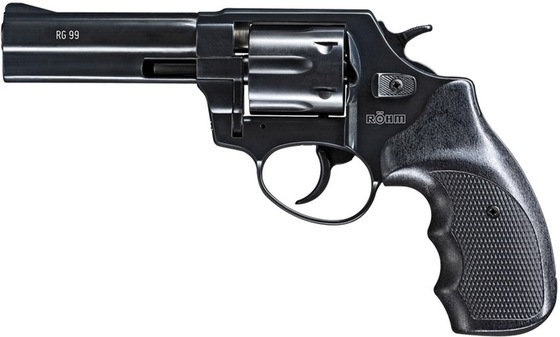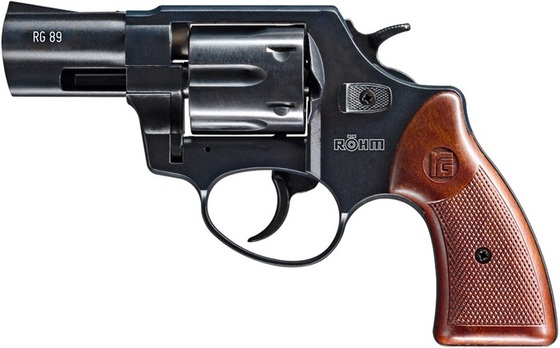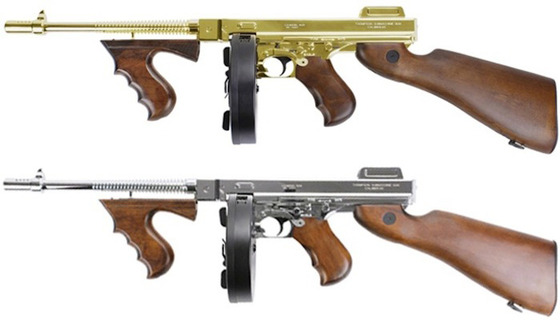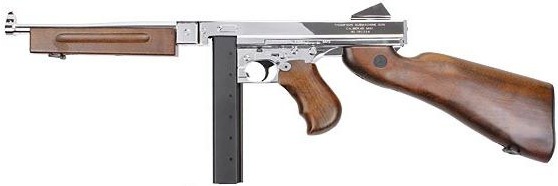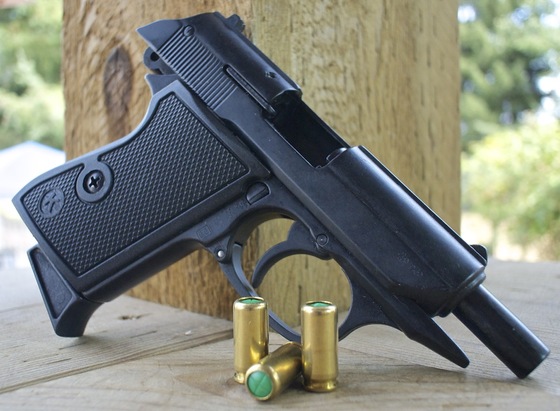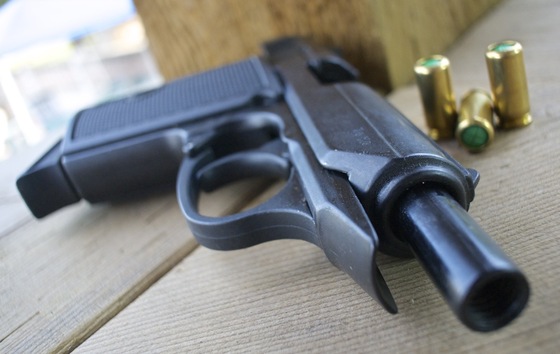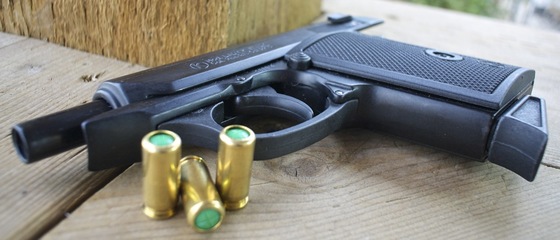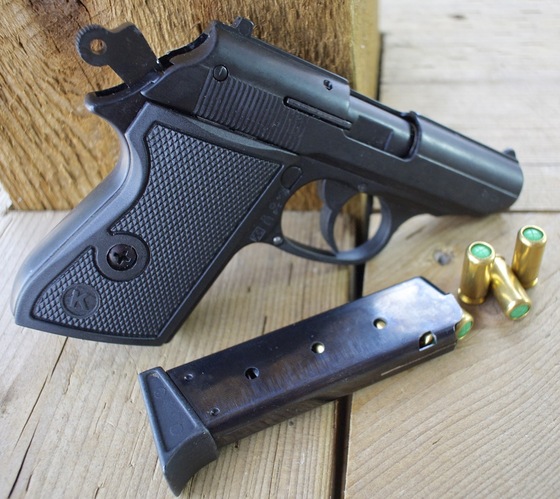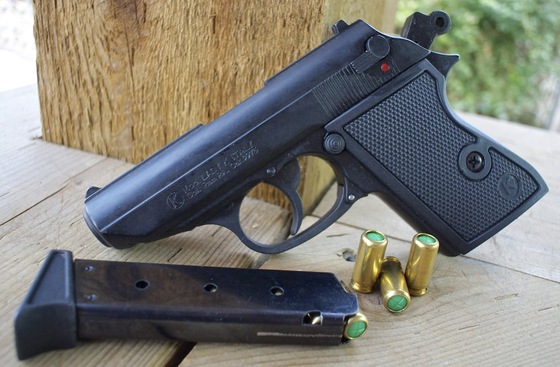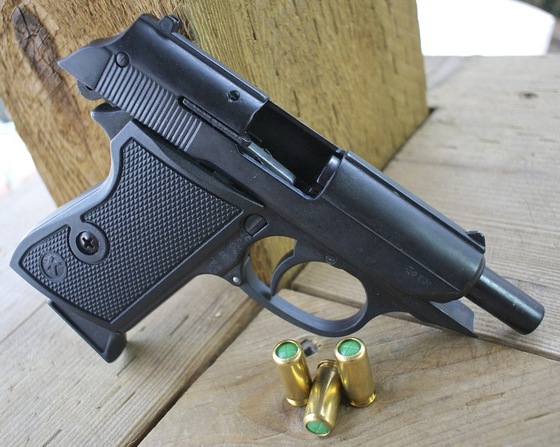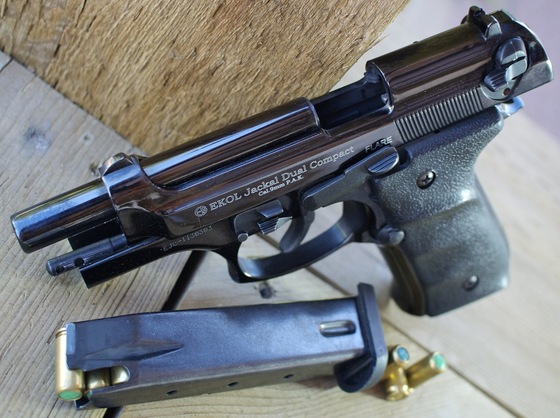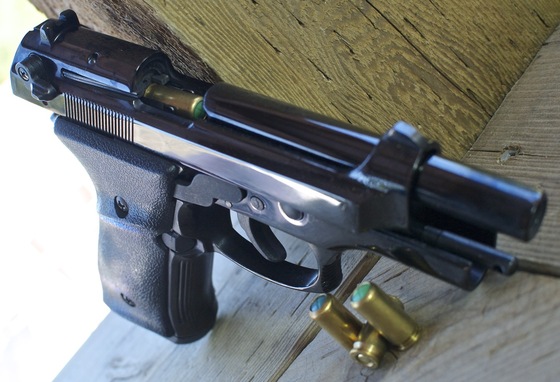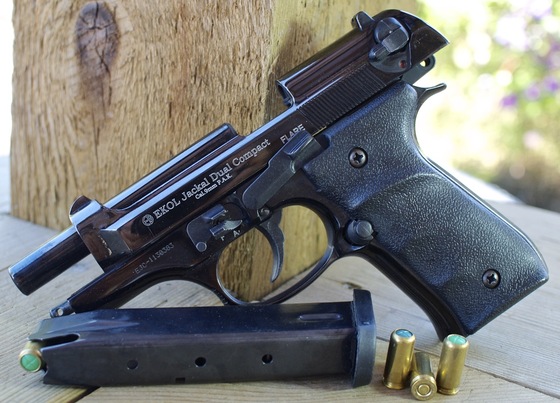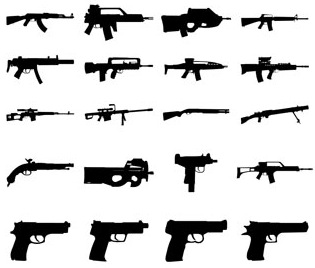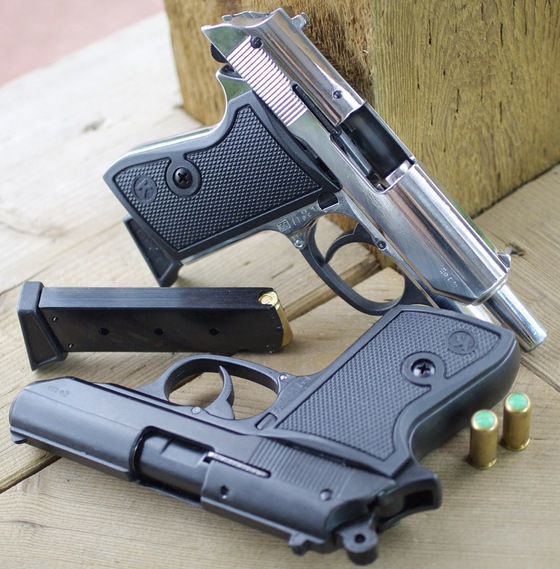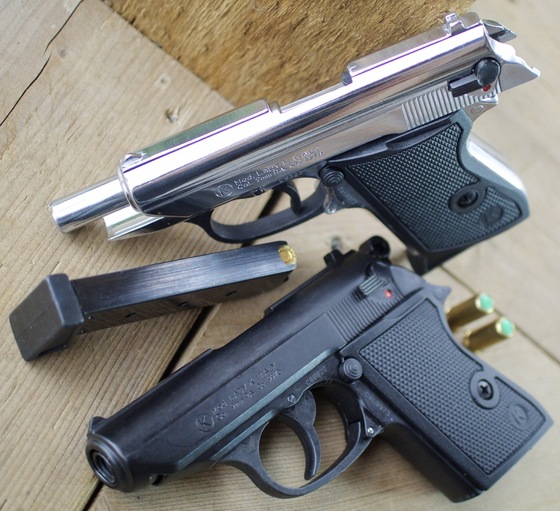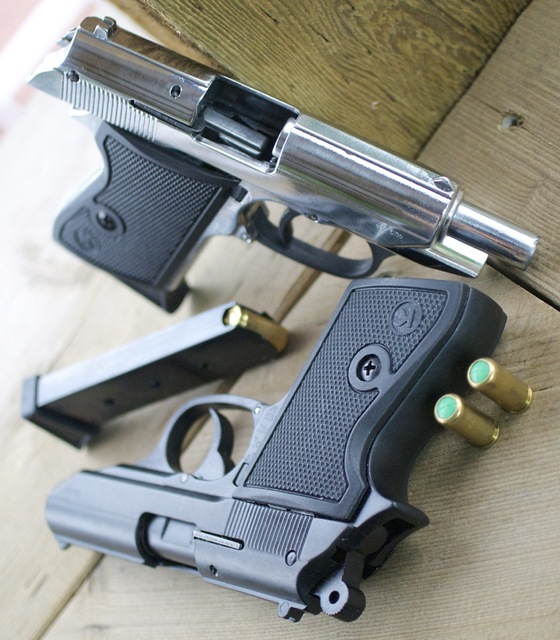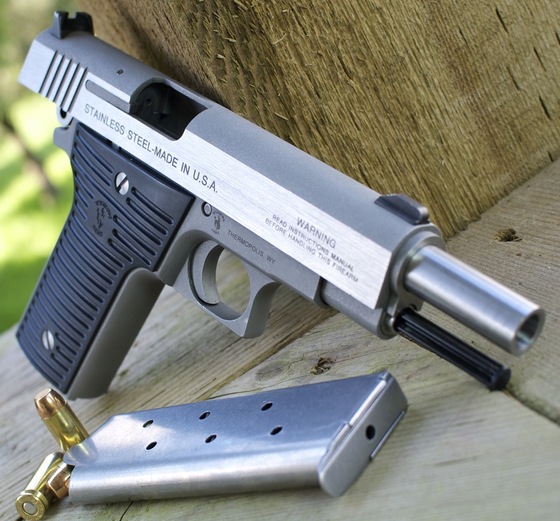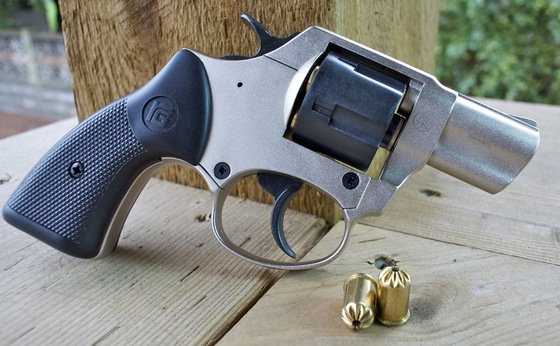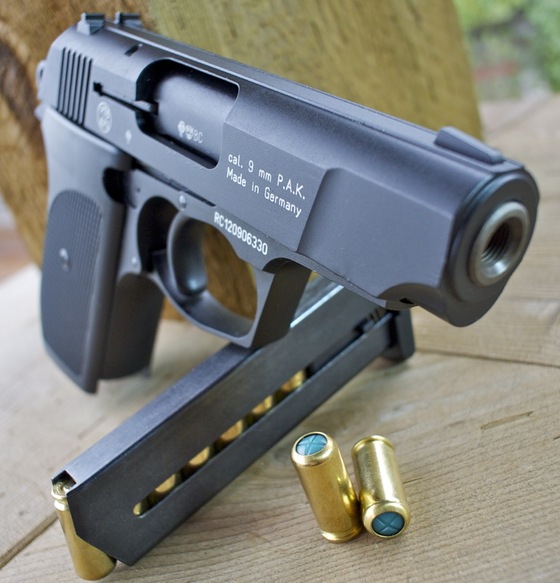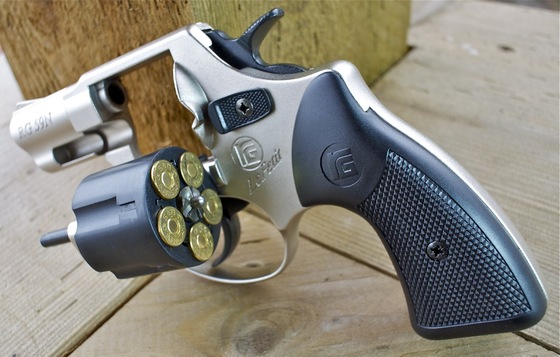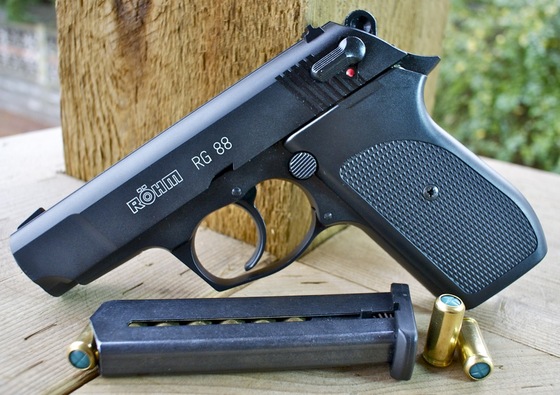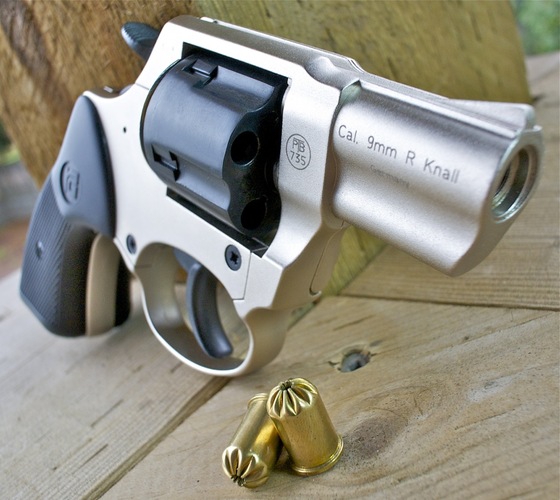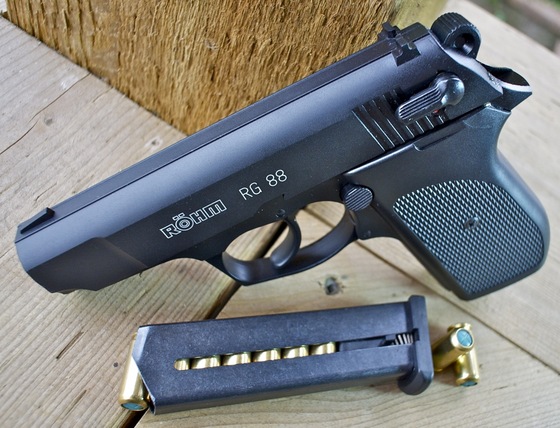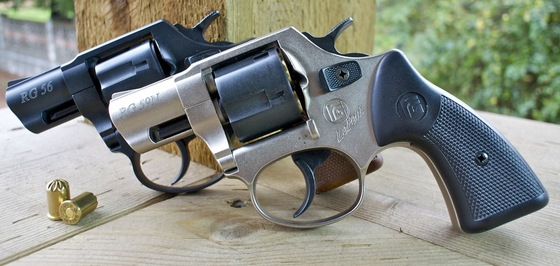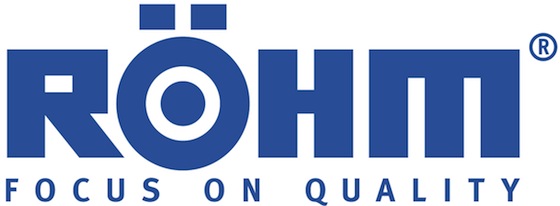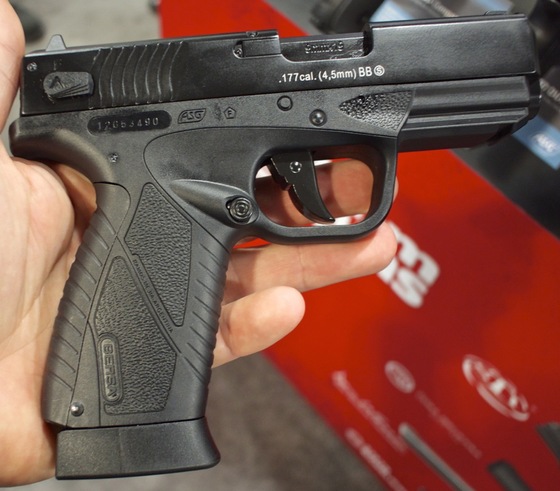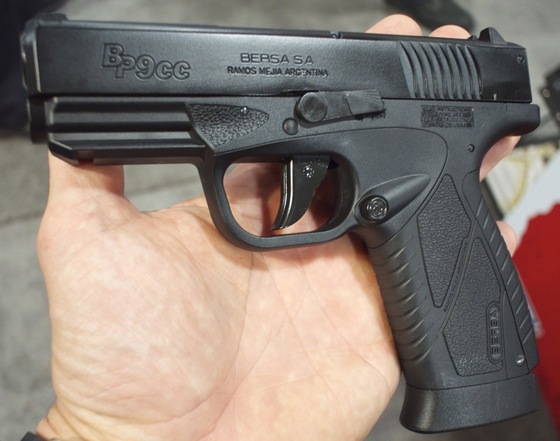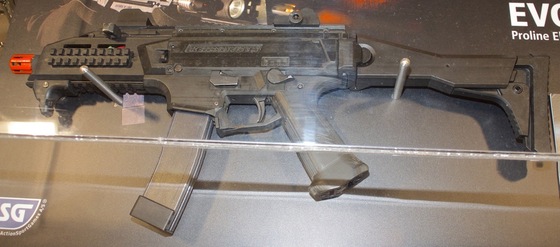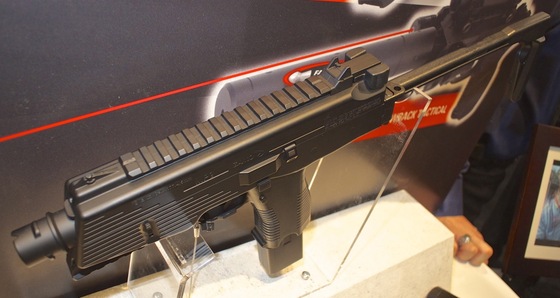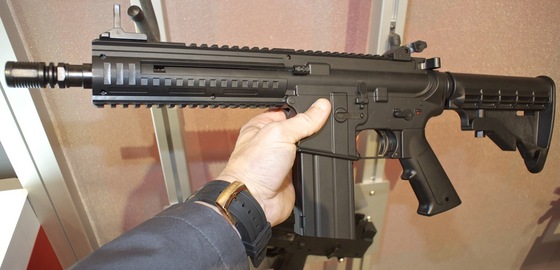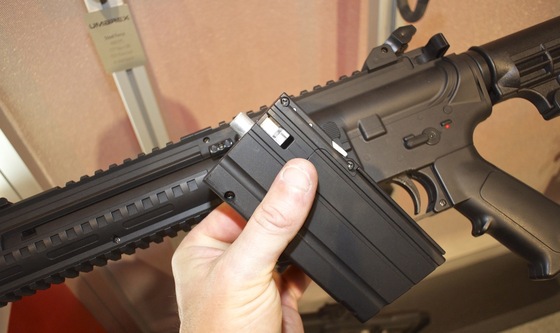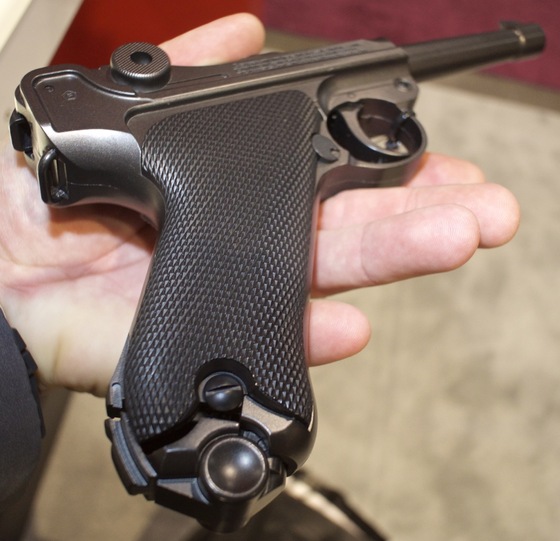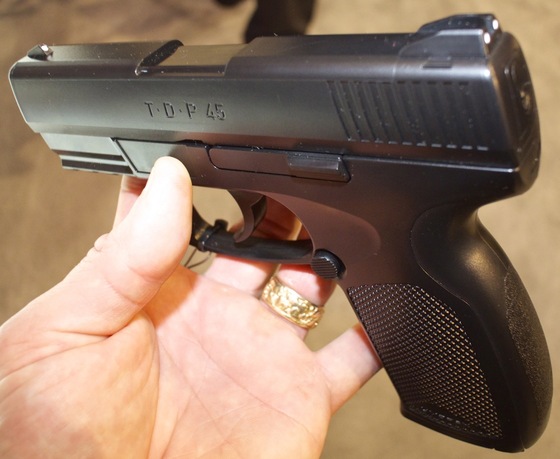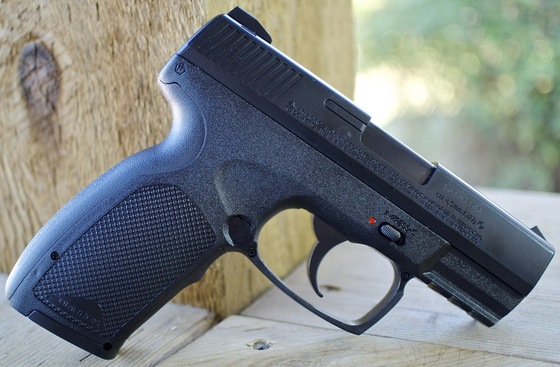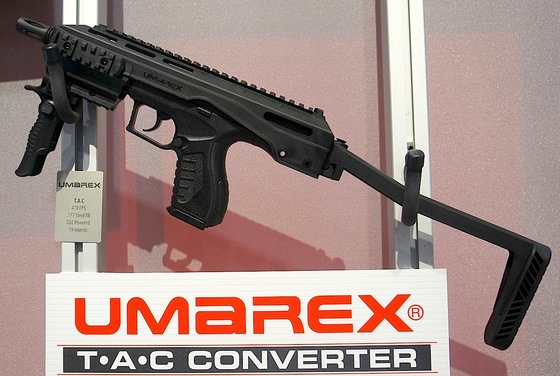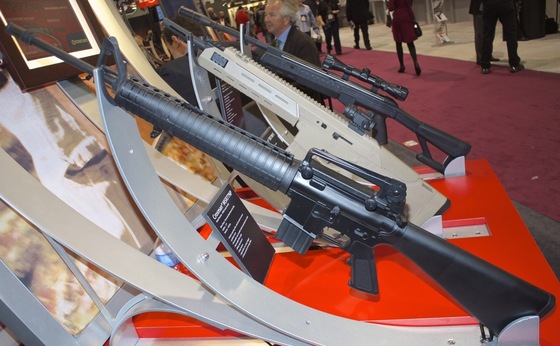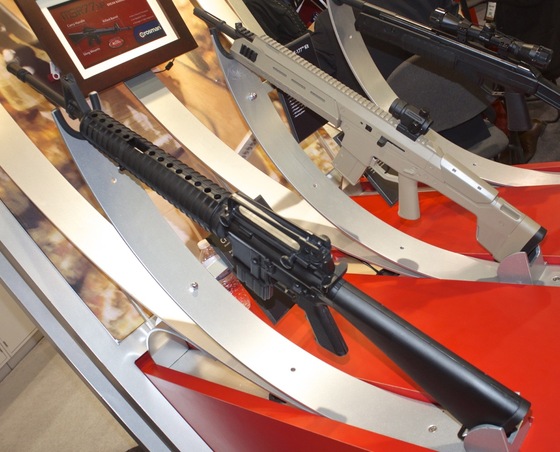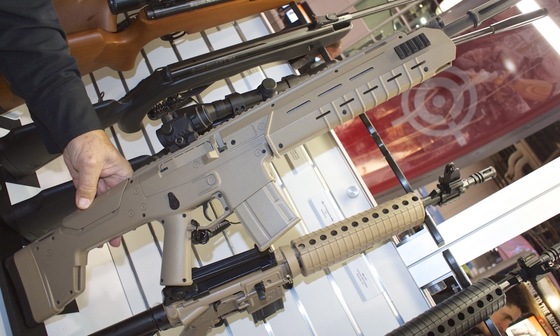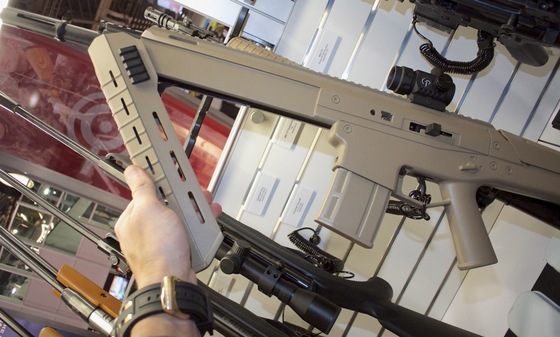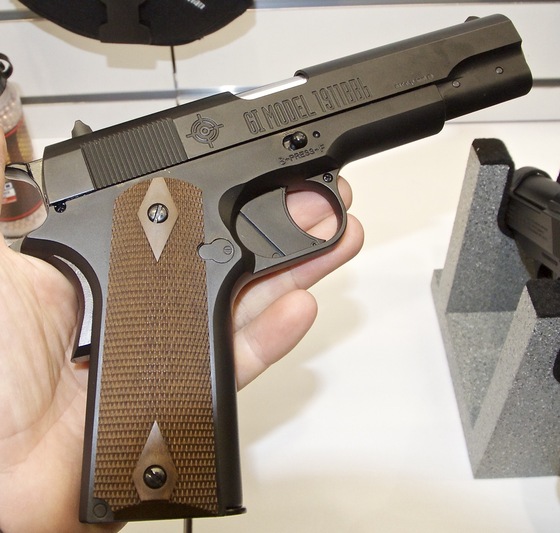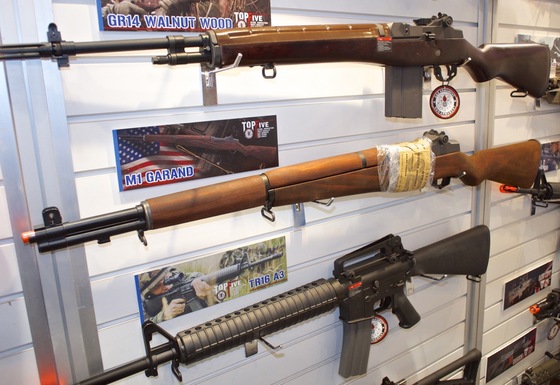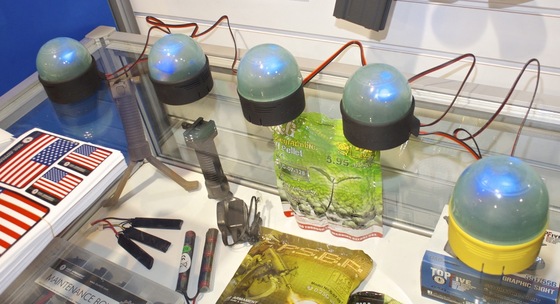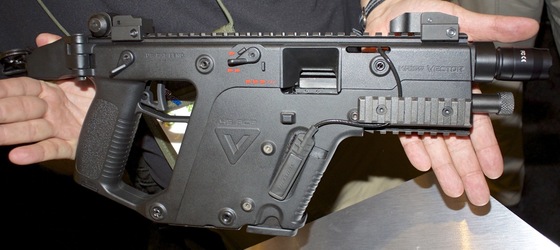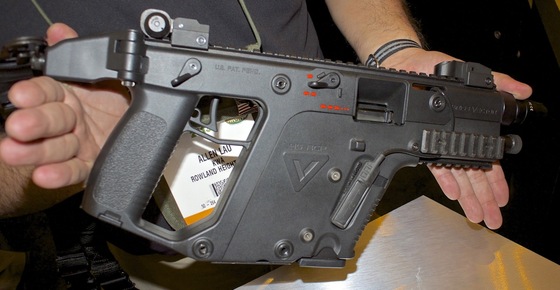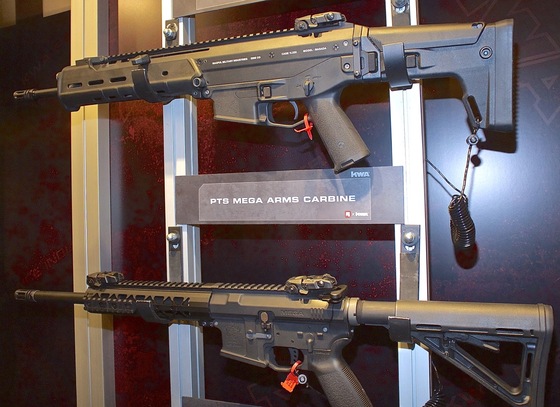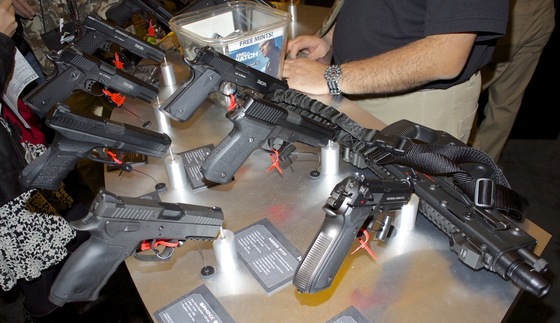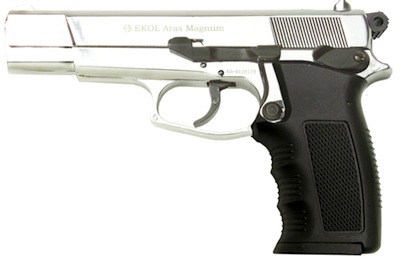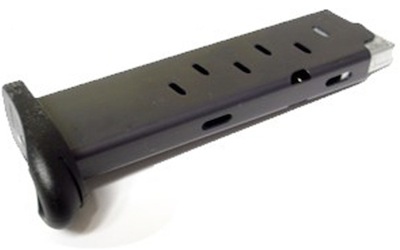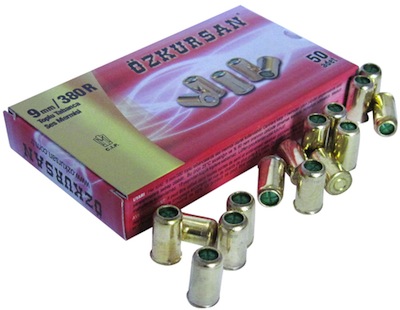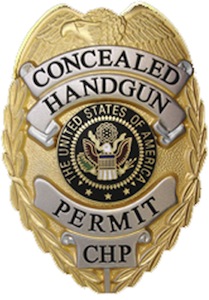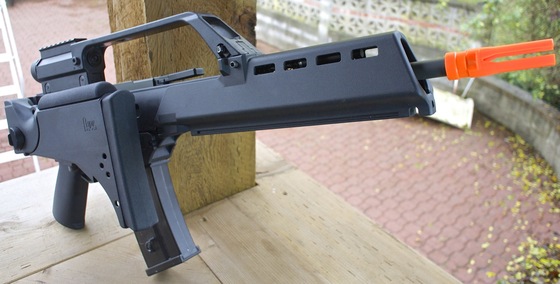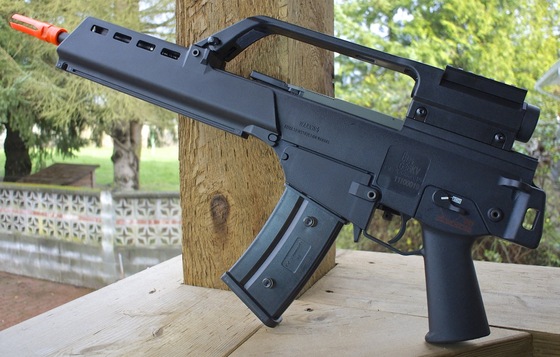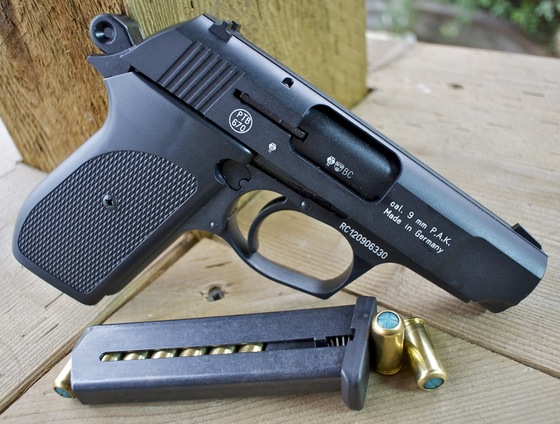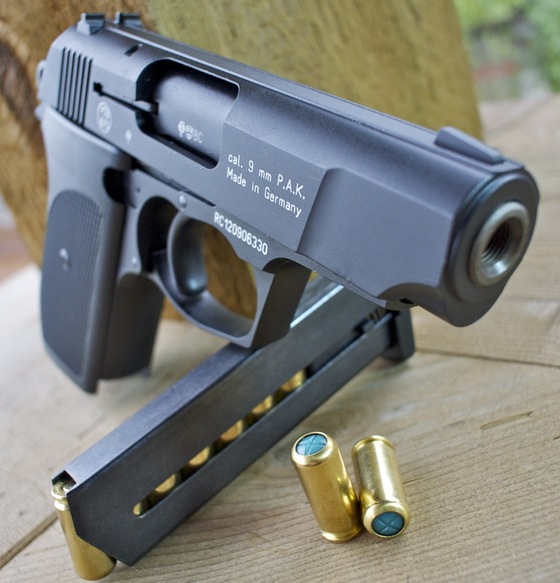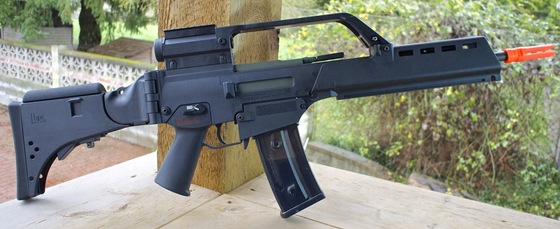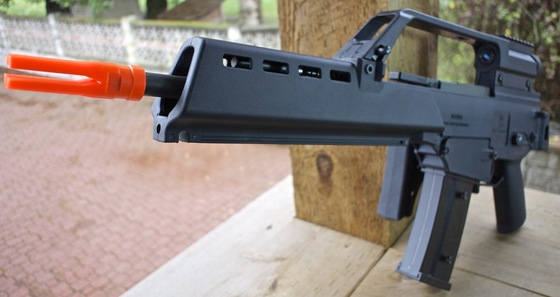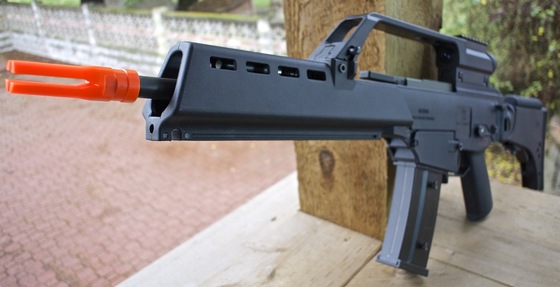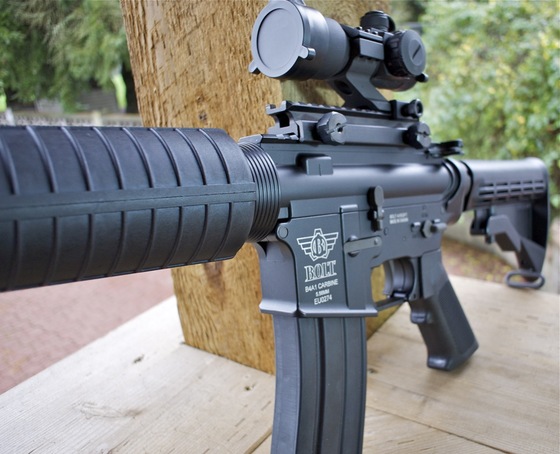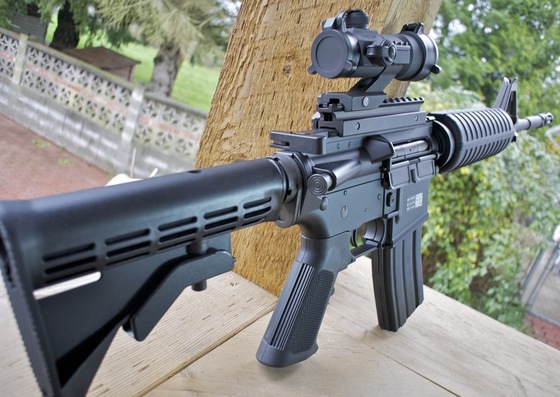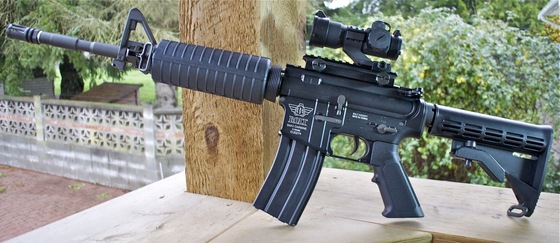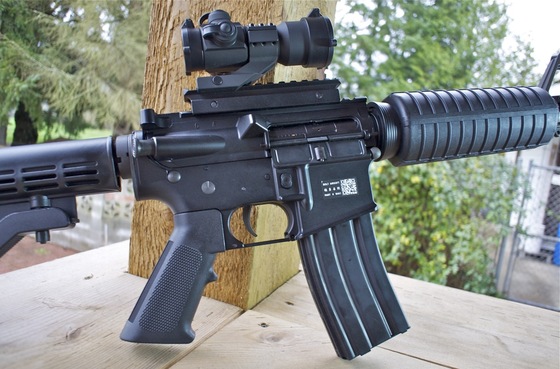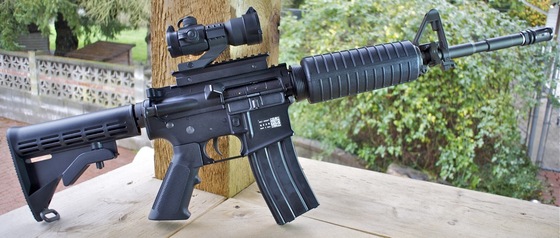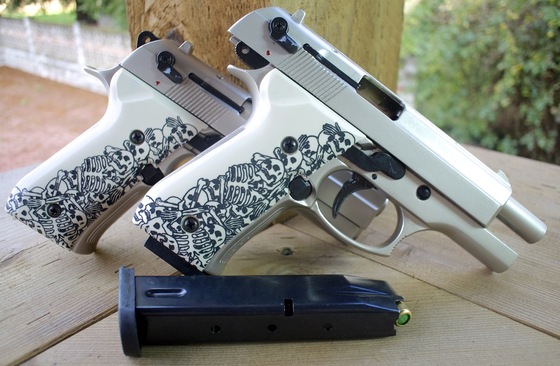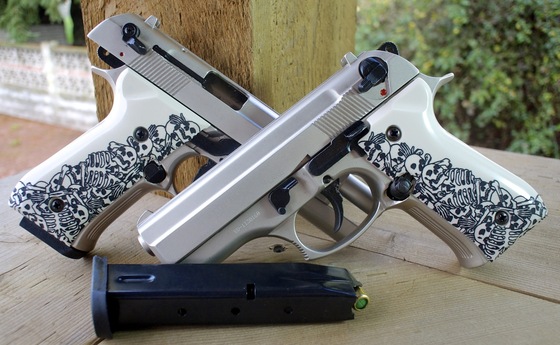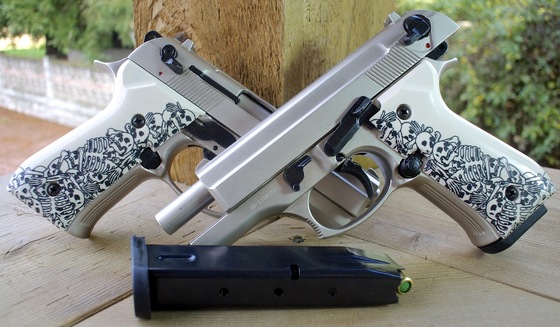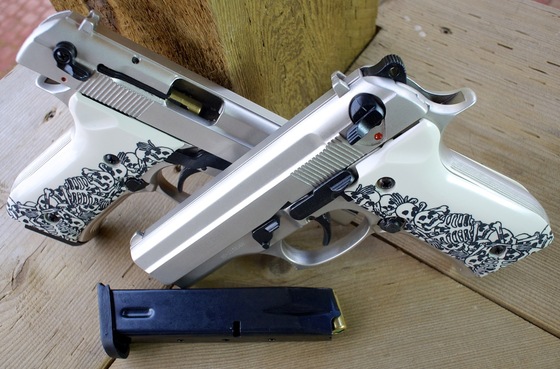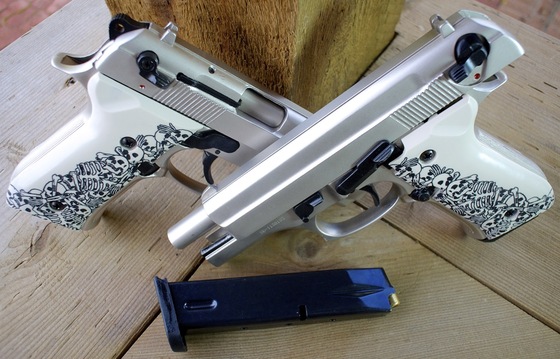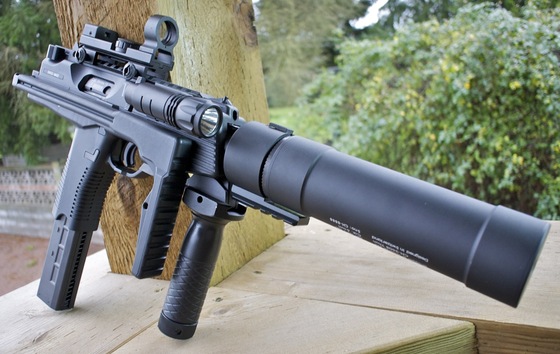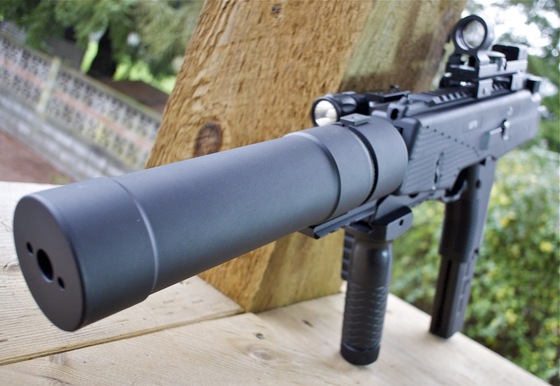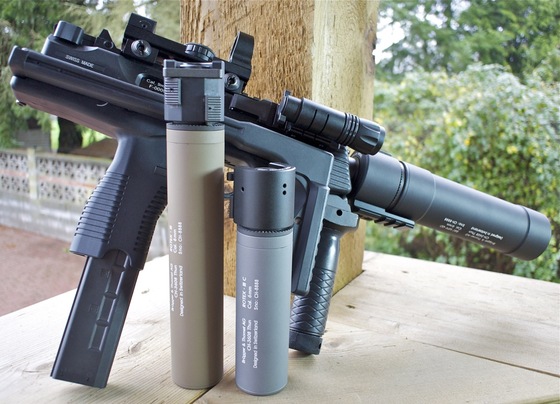I wanted to cover some basic Airgun, Airsoft Gun, Blank Gun and Paintball Gun information on what do they all shoot, what makes them shoot and some other miscellaneous info thrown in along the way...
Your should also watch the video attached at the bottom of this post as it goes into a fair amount of detail.
Let's begin with the types of ammo used:
Airgun Ammo
Airgun ammo for the most part is broken down into BBs and Pellets, the most standard size BB and Pellet is the 4.5mm or .177 caliber Steel BB and Lead Pellet. You can also get Pellets in other calibers and even other materials other than lead such as steel or aluminum, some can have plastic skirting around a metal interior.
Pellets also come in a variety of caliber's like .177, .20. 22. 25 and even larger but then I would start considering them to be bullets as they will take on the shape of a bullet when they get into the larger sizes.
Airgun Ammo is not be fired at people, it is primarily used for target and hunting small game.
Airguns can use Spring Pistons, CO2, Compressed Air and Multi-pump propulsion systems.
Airsoft Gun Ammo
Airsoft Guns for the most part shoot round 6mm (.22 caliber) plastic BBs which come in a variety of weights ranging from .12 grams up to .48 grams. There are larger Airsoft BBs such as 8mm and even larger.
There are biodegradable and even tracer florescent Airsoft BBs available.
Airsoft Ammo is traditionally used for Airsoft battles and can be fired at people using protective gear. Airsoft Ammo can also be used for target shooting.
Airsoft Guns can use Spring Pistons, Spring Piston - AEG (Electric Motor) CO2, Gas (Green, Red, Propane) and Compressed Air propulsion systems.
Paintball Gun Ammo
Paintball Guns or "Markers" have been historically used for the sport of Paintball but their whereabouts came from the need of ranchers and forestry workers to mark trees. Hence the name "Marker"
Paintball ammo comes in a variety of sizes ranging with the most common being .43 and .68 caliber. They are generally made from a gelatin outer coating containing primarily polyethylene glycol, other non-toxic and water-soluble substances, and dye, they are usually biodegradable.
Paintball Guns can also shoot a variety of Paintball Ammo that can be made out of Rubber, Plastic, Glass and they can also contain Powders and even Pepper for use in non lethal defense.
Paintball Guns can generally use either CO2 or Compressed Air as their propellant.
Blank Gun Ammo
Blank Guns are just like Real Guns but without the dangerous bullet at the end of the brass shell. Other than that they work exactly the same as a Real Gun!
Blank Guns are used when a bullet is not required or even wanted. For instance... Gun safety, gun training, training animals to be around guns and/or loud noises, Props for Movies - Stage - Film - TV, Collectors that do not want the red tape associated with owning a Real Gun or when owning a Real Gun is prohibited.
Blank Guns can shoot a variety of sized ammo, most common are .22 caliber crimped, .380 crimped, 8mm P.A.K. and 9mm P.A.K.
Blank Guns use gun powder as their means of operation.
Here are the most common forms of propulsion used in the guns we discussed earlier:
CO2
CO2 is the most common propellant in Airguns (BB and Pellet), it is also used in Airsoft Guns and Paintball Guns.
CO2 is a compressed gas which expands when released, it requires a warm environment to fully expand and tends to cool it's surroundings quickly when shot fast or in full automatic which can slow the velocity of the projectile and even freeze up the gun being used.
The most common reusable CO2 cartridges are 12 and 88 gram but you can get larger CO2 tanks in a variety of sizes that can be refilled with CO2.
Gas
Gas is used primarily in Airsoft Guns, I have not personally seen an Airgun that is made to use Gas other than CO2.
Gas is similar to CO2 in that it is a compressed gas that expands when releases, it also cools down the gun it is being used in and requires a warm environment.
Gas comes in a variety of names, Green Gas, Red Gas and Propane Gas. Green Gas contains Propane as it's base but has additives in it like silicone for lubrication .
Red Gas is know to be a bit more powerful than Green Gas as it has Chlorodifluoromethane or HCFC-22, R22 or Freon 22 used in refrigeration which turns to a liquid under a slightly higher pressure giving you slightly higher fps.
Many people use propane gas with an adapter that allows the mixture of silicone as propane is cheaper to buy.
Compressed Air (HPA)
Compressed Air (HPA - High Pressure Air) is most commonly used in Airguns and Paintball Guns but some people use it for their Gas based Airsoft guns.
The compressed air comes from high PSI tanks that can be purchased in a variety of sizes and contains compressed air at pressures up to 5000psi.
These tanks are reusable and usually need to be refilled at a paintball or scuba shop, some people buy their own compressors or large scuba tanks for refilling purposes.
Some Compressed Air (HPA) guns have their own built in tanks that can be filled with a compressor or even a manual pump.
Compressed air does not cool down the gun it is being used in and is a great option for high output or fully automatic guns.
Multi-Pump Pneumatic
Multi-Pump Pneumatic systems are most commonly used in Pellet and/or BB guns.
Multi-Pump Pneumatic guns use the same principle as HPA - High Pressure Air guns in that they require pressurized air as the propellant. The main difference with Multi-Pump Pneumatic guns, is that you do all the work by pumping the gun between shots. Generally speaking you pump the gun 3-10 times, take a shot and repeat this process.
Multi-Pump Pneumatic guns are not effected by air temperature and are great for target and small pest control.
Spring Piston
Spring pistons are generally found in Pellet Rifles and Pistols but some Airsoft Guns also use a Spring Piston System and generally speaking Spring Piston Guns are single shot only or in other words, the Spring needs to be drawn back before each shot. Spring Piston Guns can have magazines that allow for quicker repeat shots.
Spring Piston Guns come in many cocking configurations, Brake Barrel and Side lever to name a couple.
The Spring can be a Mechanical Spring or a Gas Spring.
Spring Piston Guns are not effected by temperature and are often used for small game hunting and target shooting.
Automatic Electric Guns (AEG)
Automatic Electric Guns are generally found in Airsoft Rifles but there are some Airsoft Pistols (AEP) that use this same system.
Automatic Electric Guns use a similar system to a Spring Piston gun but have an electric motor that does all the work of drawing back the spring. You can even have fully automatic AEG guns.
The power for the electric motor comes from removable batteries, so it is a combination a battery supplying the motor with the power to draw back the spring that creates a pillow of air that shoots the BB.
AEG Airsoft Guns are great for situations when you require high capacity magazines with full auto capability.
Gun Powder
Gun powder is used in Blank Guns, in the same manor that it is used in a Real Gun, the charge from the Gun Powder supplies the force required to operate the blowback in most semi auto Blank Pistols, it also creates the sound of a live round along with the muzzle flash which makes Blank Guns great for training and as Props for Movies and Film.
Because the kinetic energy from a blank gun is the same as a real gun, blank guns can be very dangerous when used in close proximity to an object, see my "Are Blank Guns Dangerous Video"!
Some other Gun Relevant Terminology:
Blowback
Blowback operation is when some of the force of the propellant is used to move the slide backwards, which in most cases cocks the hammer for single action and can also pickup and chamber a round into the barrel.
The slide spring supplies the energy for the return to the forward position of the slide.
Blowback Guns do rob some power from the bullet force and in the case of CO2 or Gas Guns the also reduce the amount of shots per CO2 or Gas fill.
Revolver, Semi Automatic
Revolver: Revolvers feed ammunition via the rotation of a cartridge-filled cylinder, in which each cartridge is contained in its own ignition chamber, and is sequentially brought into alignment with the weapon's barrel by a mechanism linked to the weapon's trigger (double-action) or its hammer (single-action)
Semi Automatic: semi-automatic pistols use the energy of one shot to reload the chamber for the next. Typically recoil energy from a fired round is mechanically harnessed. After a round is fired, the pistol will cycle, ejecting the spent casing and chambering a new round from the magazine, allowing another shot to take place immediately.
Single Shot, Repeater, Semi Automatic & Fully Automatic
Single Shot: A Single Shot Gun needs to be reloaded each time it is shot.
Repeater: Repeating action Guns are single barreled guns containing multiple rounds of ammunition. These rounds are loaded from a magazine by means of a manual or automatic mechanism, and the action that reloads the rifle also typically re-cocks the firing action. The term repeating rifle is most often applied to weapons in which the next cartridge is loaded by a manual action, as opposed to semi-automatic rifles, in which the force of one shot is used to load the next.
Semi Automatic: A semi-automatic, or self-loading, firearm is a weapon that performs all steps necessary to prepare the weapon to fire again after firing.
Fully Automatic: A Gun that uses either its recoil or a portion of the gas propelling the projectile to remove the spent cartridge (in the case of a gun-shell), fire again repeatedly, as long as the trigger is held down or until the magazine is exhausted. Automatic Guns are distinguished from semi-automatic Guns in their ability to fire more than one shot in succession once the trigger is pulled.
Single, Double Action, SA/DA
Check out my post explaining Single and Double action!
Single-Action (SA): trigger performs the single action of releasing the hammer or striker to discharge the firearm each time the trigger is pulled.
Double-Action (DA): The trigger both cocks and releases the hammer or striker
SA-DA: A SA/DA firearm combines the features of both mechanisms. You can pull the trigger in Double Action when the hammer is down which cocks and releases the trigger or you can cock the hammer with your thumb and then release the trigger using Single Action to fire the weapon.
Lever Action, Pump Action, Bolt Action
Lever Action: In a classic lever-action firearm, rounds are individually loaded into a tubular magazine parallel to and below the barrel. A short bolt is held in place with an over center toggle action. Once closed, the over center action prevents opening solely by the force on the bolt when the weapon is fired. This toggle action is operated by a hand grip that forms part of the trigger guard. When operated, a spring in the tubular magazine pushes a fresh round into position. Returning the operating lever to the home position chambers the round and closes the breach.
Pump Action: With a pump-action firearm, the action is operated by a movable fore-end that goes backwards and forwards to eject, extract, and chamber a round of ammunition. Pump-actions are usually associated with shotguns.
Bolt Action: The bolt opens and closes the breech end of the barrel and contains the firing pin. The bolt is held in place with a lever that fits into a notch. Moving this lever out of the notch will release the restraint on the bolt, allowing it to be drawn back. An extractor removes the spent cartridge, which is then ejected through the lever slot. A spring at the bottom of the magazine pushes up the reserve rounds, positioning the topmost between the bolt and the chamber at the base of the barrel. Pushing the bolt lever forward chambers this round and pushing the lever into the notch locks the bolt and enables the trigger mechanism.
Magazine vs Clip
Magazine: A magazine is an ammunition storage and feeding device within or attached to a repeating firearm. Magazines can be removable (detachable) or integral to the firearm. The magazine functions by moving the cartridges stored in the magazine into a position where they may be loaded into the chamber by the action of the firearm. The detachable magazine is often referred to as a clip, although this is technically inaccurate.
Clip: A clip is a device that is used to store multiple rounds of ammunition together as a unit, ready for insertion into the magazine or cylinder of a firearm. This speeds up the process of loading and reloading the firearm as several rounds can be loaded at once, rather than one round being loaded at a time. The term "clip" is also frequently used to refer to a detachable magazine, though such usage is incorrect.
